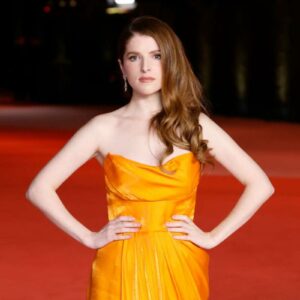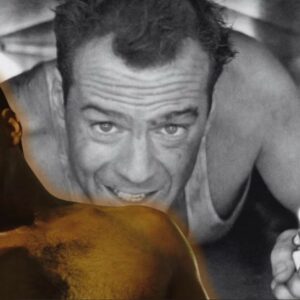Queen Latifah, born Dana Elaine Owens, is a name that resonates across the entertainment industry. From her early days as a trailblazing rapper to her undeniable presence as an actress, she has carved out a unique niche in Hollywood. Latifah’s journey from the streets of Newark, New Jersey, to the big screen is not just a story of success but a testament to her multifaceted talent. As an artist who excels in music, comedy, drama, and everything in between, Queen Latifah is a force to be reckoned with.
In Hollywood, where typecasting often limits the scope of an actor’s career, Queen Latifah defies the norm. She seamlessly blends comedy, drama, and musical elements in her performances, creating a style that is uniquely her own. This article takes a closer look at what sets Queen Latifah apart, delving into her acting style and comparing it with other prominent actresses in her genre. We’ll explore her versatility, authenticity, commanding presence, and the influence of her musical background, while also analyzing how she measures up against peers like Taraji P. Henson, Viola Davis, and Whoopi Goldberg.
Queen Latifah’s Acting Style
Versatility: The Chameleon of Hollywood
One of Queen Latifah’s most remarkable traits is her versatility. She has a rare ability to transition effortlessly between genres, a skill that few in Hollywood possess. Whether she’s playing the sassy, no-nonsense Matron “Mama” Morton in Chicago or the vulnerable but strong-willed Khadijah James in Living Single, Latifah proves she can navigate between comedy, drama, and musical performances with ease.
Her role in Chicago (2002) was particularly groundbreaking, showcasing her prowess not just as an actress but as a singer. In a film filled with powerhouse performances, Latifah held her own, bringing a blend of humor, authority, and vocal strength to the role. Contrast this with her performance in Bessie (2015), where she embodied the complexities of blues legend Bessie Smith. Here, Latifah delved deep into the emotional turmoil of her character, demonstrating her ability to tackle intense, dramatic roles with the same ease as her comedic ones.
Latifah’s versatility is not just about moving between genres but also about the depth she brings to each character. She infuses each role with a distinct personality, making it difficult to typecast her. This ability to shapeshift while maintaining a strong sense of self is what makes her one of Hollywood’s most dynamic performers.
Authenticity: The Real Deal
Authenticity is at the core of Queen Latifah’s acting style. She brings a sense of realism to her characters, often portraying strong, relatable women who resonate deeply with audiences. Her characters are not just written to be strong; Latifah makes them feel lived-in, as if she’s channeling her own life experiences into each performance.
Take her role as Georgia Byrd in Last Holiday (2006). The film’s premise—an ordinary woman who, believing she has a terminal illness, decides to live life to the fullest—could easily have veered into melodrama or cliché. Instead, Latifah brings a grounded, warm authenticity to the character. Georgia is not just a woman chasing after a bucket list; she’s someone who rediscoveries herself in the process, and Latifah’s performance captures that journey with sincerity and heart.
This authenticity extends to her portrayal of everyday struggles, especially in roles where she represents Black women. Latifah doesn’t just play a character; she becomes that character, bringing a level of relatability that makes her performances stand out. She has a knack for finding the humanity in her roles, whether she’s playing a larger-than-life figure like Bessie Smith or a more grounded character like Leslie Wright in Just Wright (2010).
Commanding Presence: A Natural Leader
Queen Latifah’s screen presence is undeniable. She has a commanding aura that makes her a natural leader in any ensemble cast. This presence is not just about physical stature; it’s about the energy she brings to the screen. She has the ability to dominate a scene without overshadowing her co-stars, a balance that is crucial in ensemble films.
In Set It Off (1996), a heist film where she starred alongside Jada Pinkett Smith, Vivica A. Fox, and Kimberly Elise, Latifah’s character, Cleo, is the heart of the group. Her portrayal of Cleo—a tough, street-smart woman with a soft spot for her friends—demonstrates her ability to command attention without taking away from the ensemble dynamic. Cleo’s unapologetic toughness, combined with her deep loyalty, made her one of the most memorable characters in the film.
Latifah’s presence is also evident in her comedic roles. In Bringing Down the House (2003), she starred opposite Steve Martin, and despite the film’s slapstick nature, Latifah’s performance was both commanding and endearing. Her ability to hold her own against a seasoned comedian like Martin is a testament to her confidence and charisma as a performer.
Musical Influence: Rhythm in Her Roles
As a musician, Queen Latifah brings a unique rhythm to her acting. Her musical background, particularly in hip-hop and jazz, has influenced her approach to performance, adding an additional layer to her roles. This is especially evident in roles that require singing or where music plays a significant part in the character’s life.
In Chicago, Latifah’s performance of “When You’re Good to Mama” is a masterclass in blending music and acting. Her background in music allowed her to bring a natural rhythm to the performance, making her character’s musical numbers feel organic rather than forced. Similarly, in Hairspray (2007), where she played Motormouth Maybelle, Latifah’s musicality was central to the character’s vibrancy and strength.
Even in non-musical roles, there’s a certain rhythm to how Latifah delivers her lines and moves on screen. It’s as if she’s constantly in tune with an internal beat, which adds a dynamic flow to her performances. This musical influence sets her apart from other actresses, giving her performances a unique texture that resonates with audiences.
Comparison with Other Actresses in Her Genre
Taraji P. Henson: The Fiery Counterpart
Taraji P. Henson is another actress known for portraying strong female characters, but her approach contrasts sharply with Queen Latifah’s. Henson often brings an intense, fiery energy to her roles, whether she’s playing the fierce Cookie Lyon in Empire or the determined Katherine Johnson in Hidden Figures (2016).
While both actresses portray strong Black women, Latifah’s strength is often more grounded and nurturing, whereas Henson’s is more intense and confrontational. In dramas, Henson tends to take on roles that require a high emotional charge, often portraying women who are fighting against overwhelming odds. In contrast, Latifah’s dramatic roles often involve characters who are strong but approachable, bringing a balance of humor and seriousness to their struggles.
This difference is evident when comparing Latifah’s Georgia Byrd in Last Holiday with Henson’s Melinda in Acrimony (2018). While both characters are dealing with life-altering situations, Latifah’s Georgia faces her challenges with warmth and resilience, while Henson’s Melinda is consumed by anger and betrayal. Both approaches are powerful, but they speak to the different ways these actresses channel strength in their performances.
Viola Davis: The Emotional Powerhouse
Viola Davis is renowned for her raw, emotionally charged performances. She brings a level of intensity to her roles that is unmatched, often portraying characters who are deeply scarred yet resilient. Davis’s performances are transformative; she immerses herself in her characters to the point where she disappears into the role.
In contrast, Queen Latifah’s dramatic style is often softer and more relatable. While she can certainly deliver powerful performances, her approach is more about connecting with the audience on a personal level. Latifah’s characters often feel like someone you know—a friend, a sister, or a mother—while Davis’s characters often feel like they’re carrying the weight of the world on their shoulders.
This contrast is clear when comparing Latifah’s performance in Bessie with Davis’s in Fences (2016). Both actresses portray complex, multifaceted women, but where Davis’s Rose Maxson is raw and deeply emotional, Latifah’s Bessie Smith is more about resilience and survival. Davis’s intensity draws you into her character’s pain, while Latifah’s approach allows you to see the character’s strength and determination.
Whoopi Goldberg: The Comedic Pioneer
Whoopi Goldberg is another actress who, like Queen Latifah, has successfully navigated the worlds of comedy, drama, and music. However, their comedic styles are quite different. Goldberg’s humor is often eclectic and cerebral, using wit and irony to address social issues. Latifah’s comedy, on the other hand, is more modern and urban, often infused with a sense of cultural authenticity.
Both actresses have used humor to break down barriers for Black women in Hollywood, but they’ve done so in different eras and with different approaches. Goldberg’s comedy often comes with a sharp social critique, as seen in films like The Color Purple (1985) and Ghost (1990), where she used humor to address serious issues. Latifah, while also addressing social issues, often brings a lighter, more relatable touch to her comedy, as seen in films like Beauty Shop (2005).
Their impact as pioneers is undeniable. Goldberg broke barriers in the 1980s and 1990s, paving the way for actresses like Latifah. In turn, Latifah has continued that legacy, bringing her own unique style to the roles she plays. Both actresses have expanded the possibilities for Black women in Hollywood, but Latifah’s style is more grounded in modern, urban experiences, while Goldberg’s is more eclectic and broad.
Impact on the Genre
Trailblazing Roles: Opening Doors for Diversity
Queen Latifah has played a significant role in opening doors for more diverse roles in Hollywood, particularly for Black women in lead roles. Her success has shown that Black women can be more than just supporting characters or stereotypes—they can be the stars, the heroes, and the leaders. This trailblazing role is evident in her choice of projects, often taking on roles that challenge the status quo and present Black women as multidimensional characters.
In a genre where Black actresses are often pigeonholed into certain types of roles, Latifah’s career stands out. She has portrayed everything from historical figures to everyday women, bringing a sense of authenticity and depth to each role. This has not only broadened the scope of roles available to Black actresses but has also challenged Hollywood to present more diverse and realistic portrayals of Black women.
Cultural Influence: Bringing Authenticity and Richness
Latifah’s influence extends beyond her acting. She has brought a sense of authenticity and cultural richness to her characters, often drawing on her own experiences and heritage. This cultural influence is particularly evident in her comedic roles, where she often incorporates elements of Black culture in a way that feels natural and genuine.
Her portrayal of Khadijah James in Living Single is a prime example of this. The show, which was one of the first to focus on the lives of Black women, was groundbreaking in its portrayal of Black culture. Latifah’s performance as Khadijah was not just about being funny or relatable; it was about representing a culture that was often overlooked in mainstream media.
Legacy: Influencing Future Generations
Queen Latifah’s legacy is one of versatility, authenticity, and trailblazing success. She has influenced a generation of actresses who see her as a role model for how to navigate Hollywood while staying true to oneself. Her unique blend of musical talent, comedic timing, and dramatic depth has set a new standard for what it means to be a successful Black actress in Hollywood.
Latifah’s influence can be seen in the careers of actresses like Taraji P. Henson, Regina King, and even younger talents like Zendaya, who have all cited Latifah as an inspiration. Her ability to excel in multiple genres and mediums has shown that Black women can be just as versatile and successful as their counterparts.
Conclusion
Queen Latifah stands apart in Hollywood for her unique blend of versatility, authenticity, and musical influence. She has managed to carve out a niche that is entirely her own, blending comedy, drama, and music in a way that feels seamless and natural. Her ability to navigate different genres, bring authenticity to her roles, and command the screen with her presence sets her apart from her peers.
In comparing her to other actresses like Taraji P. Henson, Viola Davis, and Whoopi Goldberg, it’s clear that while each brings something unique to the table, Latifah’s approach is distinct. She brings a grounded, relatable quality to her roles that resonates deeply with audiences, making her a beloved figure in the entertainment industry.
As Hollywood continues to evolve, Queen Latifah’s influence will undoubtedly be felt for generations to come. Her contributions to the industry have not only expanded the roles available to Black women but have also enriched the cultural landscape of Hollywood. In a world where authenticity and versatility are increasingly valued, Queen Latifah remains a trailblazer and a true icon of her genre.





